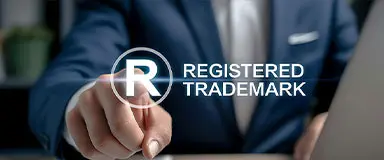Practical tips on choosing the right filing timing and trademark classes to register a clothing brand and reduce the risk of USPTO refusals when launching a new business line.
Do You Need an International Trademark Lawyer for Trademark Protection?
Written by Emily Brooks ·

Ever heard of Hungry Jack's? It's what Australians call Burger King. Why? Because when Burger King tried to expand Down Under, they found a small restaurant in Adelaide had already trademarked the name. Talk about an expensive surprise! This is exactly why businesses ask: Do you really need an international trademark lawyer?
The Global Trademark Problem Made Simple
Here's the thing about trademarks – they only work where you register them. Your U.S. trademark might be worthless in Japan. Or Brazil. Or Germany. Every country has its own system, rules, and procedures. There are different cultural norms, and language barriers can make your business a non-starter if you don't do everything right from the get-go.
So you've got a choice to make. Do you hire local lawyers in each country? Or do you work with one international firm that handles everything? Let's break down both options.
The Hometown Advantage of Local Counsel
The main value you get with local lawyers is that they are based in the country whose market you're trying to enter:
- They Know Their Turf: Local attorneys understand exactly how their country's trademark office works. They know which examiner works best with certain types of applications. They spot cultural issues you'd never see coming.
- They Speak the Language: Most countries want trademark applications in their official language. Local lawyers don't need translators. They get the nuances right the first time.
- They Have Connections: Ever notice how having an "in" helps move things along? Local attorneys often have relationships with trademark officials. This can be huge when problems come up.
- They Know the Courts: If someone fights your trademark, local counsel already knows how the local judges might rule. They know what works in that specific court.
Of course, when you're working with local companies in a country that's far away from yours, both geographically and in legal precedent, you might encounter various issues:
- So. Many. Lawyers. Trying to manage law firms across 15 different countries? Good luck. Each has different billing methods. Different reporting styles. Different time zones.
- Strategy Gets Messy: One lawyer says fight the infringement. Another says ignore it. Without someone coordinating, your approach becomes a patchwork.
- Repeat, Repeat, Repeat: You'll explain your business goals over and over to each new firm. It's exhausting.
- Budget Nightmares: Some firms bill by the hour. Others have flat fees. Predicting your legal expenses becomes nearly impossible.
International Trademark Firms as a One-Stop Shop
On one hand, using a single firm that has an international reach can greatly streamline and simplify your company's efforts:
- Consistent Game Plan: One team means one strategy everywhere. Your approach in Germany matches your approach in Japan.
- Simpler Communication: One email. One phone call. One team to update on changes. Your internal teams will thank you.
- Less Paperwork: One invoice instead of 12. One reporting format. One docketing system. Fewer administrative headaches.
- Better or Streamlined Pricing: Don't discount volume discounts. International firms often offer package deals for multi-country filings.
- Big Picture View: International law attorneys spot patterns across countries. They might notice your trademark is being targeted in three different markets – something no local counsel would catch alone.
On the other hand, that same single company might cost you too much in the long run:
- Missing Local Details: Even great international attorneys might not know that your trademark translates to a rude word in a specific dialect.
- Only as Good as Their Network: These firms work with local associates. If those relationships aren't solid, it's your company that ends up suffering.
- Language Limits: Yes, they have multilingual staff. No, they probably don't have native speakers for every language you need. They might even need to outsource, which brings you straight to local counsel in the end.
- Conflict Issues: Big firms have more clients. This means more potential conflicts that could prevent them from representing you in certain matters.
The Middle Path: A Bit of Both
Smart companies often use a mix. They might:
- Have one international firm setting the overall strategy.
- Bring in local specialists for tricky markets or actual lawsuits.
- Use technology to help everyone work together.
This gives you flexibility but needs good coordination to work well.
How to Choose What's Right for You
Here are the biggest questions you'll need to answer when dealing with international trademark protection:
- How Big Is Your Trademark Family? Got three trademarks in two countries? Or hundreds across the globe? The bigger your portfolio, the more centralization helps.
- What's Your Budget? Centralized services might cost more upfront, but save money long-term. Be honest about what you can spend.
- How Much Risk Are You Facing? Industries plagued by counterfeits might need specialized local litigation experts.
- Who's Managing This In-House? Got a tiny (or nonexistent) legal team? Centralization makes their lives much easier.
- Where Are You Headed? Choose an approach that can grow with your business.
Bottom Line: Protect Your Brand Now
There's no perfect solution for everyone. But here's what you should do:
- Decide on your approach before entering new markets.
- Register your trademarks proactively – don't wait until there's a problem.
- Choose advisors who understand your business, not just trademark law.
- Review your strategy yearly as your business grows.
Remember, your brand is too valuable to leave unprotected. Whether you go local, global, or hybrid, the important thing is to act now. The right trademark protection services will turn international trademark challenges into opportunities for your brand to thrive worldwide.


